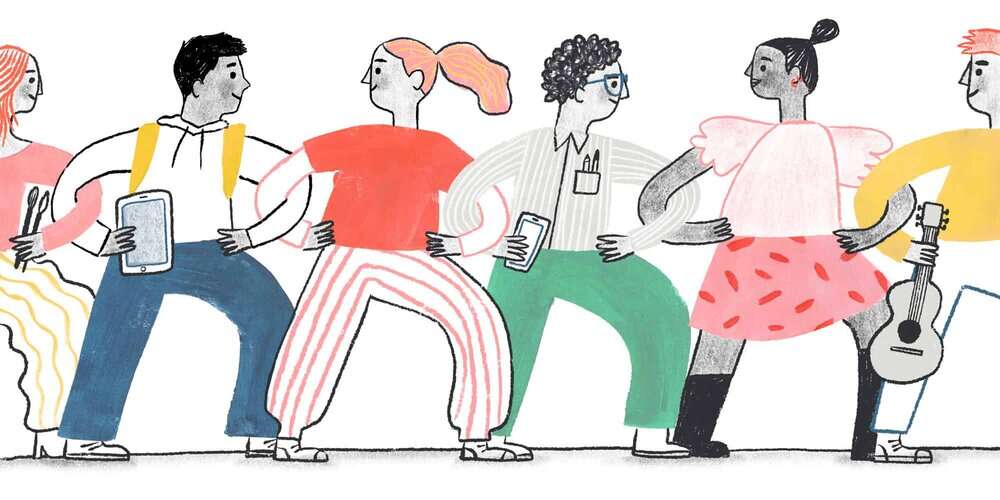Social Connections

Friendships and relationships
Your social universe is made up of different types of relationships. You might have close friends or family to rely on and confide in. You could have connections with teammates, bandmates, and others who share your interests — and those people might know you in a different way than some of your friends do. Perhaps you are in a romantic relationship. And some people you see all the time are just acquaintances — maybe you smile at them or occasionally exchange a few words.
Friendships and friend groups may change. Maybe someone who was a close friend no longer seems like one — you might not see them as much due to your schedule, or you might be growing apart, or you might have had a falling out. And then there are all the people you interact with online — some only on-screen and some you also see in-person.
All of these connections are a significant part of your life. But navigating them can be challenging. We’re here to help.
— submitted by a Young Person
Watch these videos from the Administration for Children and Families (ACF) of teens talking about how to build healthy relationships:
Opens in a new tabTeens Talk Relationships: Friendship edition Opens in a new tabTeens Talk Relationships: Dating editionWhat do healthy relationships look like?
Healthy relationships boost our emotional well-being. Connecting with people who lift you up, support you when you’re down, and make you feel like you belong makes life better. Even smiling at a casual acquaintance can boost feelings of belonging and happiness for both of you. On the other hand, feeling lonely or isolated can harm mental wellness. And being in unhealthy relationships may do that, too.
Try asking yourself these questions about friends and romantic partners. Your answers can help you learn more about creating and enjoying healthy relationships — and might even make you think twice about some relationships.
- How does spending time with them make me feel? Do I feel happy, or do I feel uncomfortable?
- Do they respect my feelings and boundaries, or do they pressure me to do things I don’t want to do?
- Do they listen to me and respond kindly, or do they make me feel ignored, unseen, or judged?
- Are they there for me in good times and bad?
- Can I trust them not to share my secrets or talk about me behind my back?
- Can we talk through arguments, or do they hold a grudge?
- Are they competitive with me? Do they act like they are better than me?
Still wondering if your relationship is healthy? Take the quiz Opens in a new tabHow healthy is your friendship? from Kids Help Phone.
Learn more about healthy romantic relationships from Opens in a new tablove is respect.
Worried that a friend is in an unhealthy relationship?
You can support them by:
- asking gentle, nonjudgmental questions
- sharing what’s worrisome to you using “I” statements rather than accusations: “I’m concerned that your partner seems to tell you when you can and can’t spend time with your friends” versus “You never spend time with me anymore”
- offering to explore resources together
- telling a trusted adult.
Creating a Healthy Digital Life
Balance online engagement and wellbeing through mindful digital choices.







